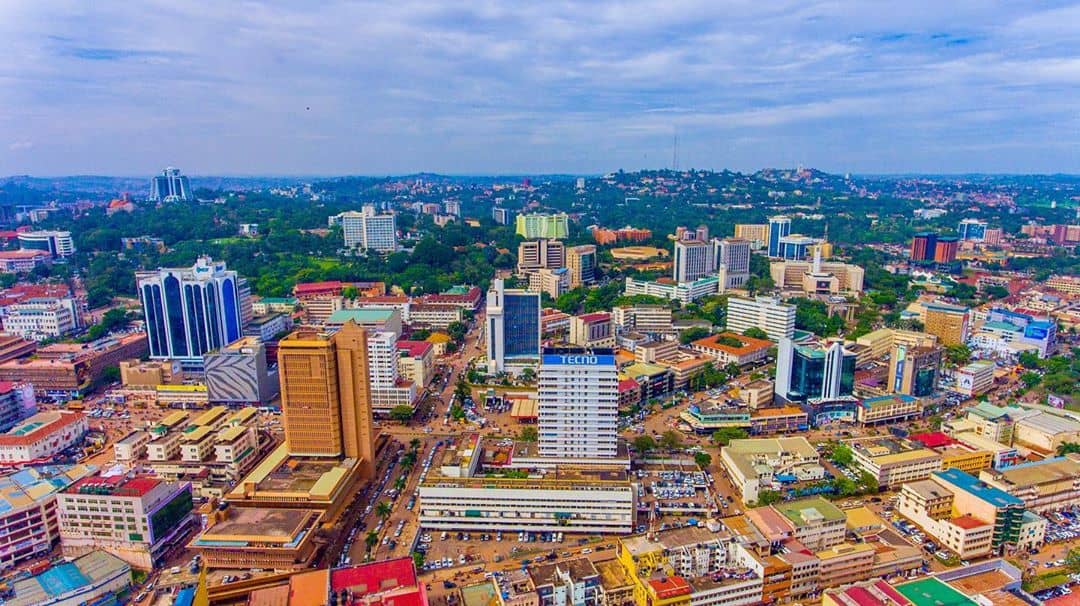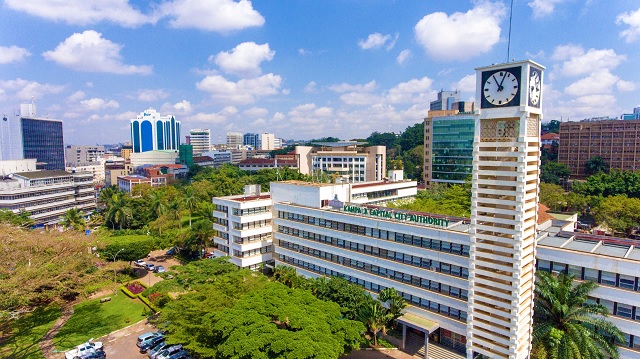BY IRENE ABALO OTTOiaotto@ug.nationmedia.com
Kampala Capital City Authority (KCCA) secured funding from the European Union to implement some recommended actions from the Kampala Climate Change Action Plan which seeks to ensure that the long term development of Kampala City takes a low carbon and sustainable path in line with KCCA’s Strategic plan 2014 – 2019 and beyond.
https://www.kcca.go.ug/news/295/developing-and-sharing-the-low-carbon-and-climate-resilient-kampala#.X2Y5dx2Lko8
Kampala Capital City Authority council is yet to meet and discuss a drafted an ordinance that seeks to regulate infrastructural development and conserve tree and plant diversity within the city.
Inside the Kampala City Green Infrastructure Ordinance, 2020, a copy of which I obtained, strongly specifies how green spaces will be allotted and preserved by those dealing in commercial and private infrastructure works.
“All developments in residential areas shall allow for a minimum open green space plot coverage of forty percent of the plot. Such green space shall be open to the sky and predominantly permeable. The owner of a development in a residential area shall be required to plant at least one tree for every eighty square metres of open green space,” Reads paragraph 6 (b) of the Ordinance. Paragraph 6 (c) adds that; “All development in commercial areas shall allow for a minimum open green space plot coverage of ten percent of the plot. All development in commercial areas shall allow for a minimum of one tree for every fifteen metres along the main frontage of the development.”The draft ordinance also requires parking lots to have a minimum of one tree for every off-street parking spaces. There are also provisions for the City Authority to identify and map all infrastructure corridors in the city in order to ease movement of both underground and overhead infrastructure with minimal disruptions to the environment. “No person shall without a permit of the Authority shall pollard any tree; transplant or remove any tree on either private or public land; construct any structure around the tree or inside the the drip line of the tree.” Reads paragraph 11 (h) of the first schedule.

Context_document_Kampala_2019.pdf
Schedule nine of the Ordinance provides a permit form for anyone who would like to carry out any activity around the tree on either their private or public property. She of the terms and conditions in granting permission include; “A KCCA official must be present on site at the time of execution of the permitted activity. Replacement and planting shall be as per the urban forestry management. All tree trimming, pollarding and removal permits are valid for six months,” among other conditions.
The Ordinance was scheduled for a second reading in a council meeting that flopped last month. Councilors say the meeting was to discuss numerous city matters but failed to convene due to some political interests.
According to Mr. Kennedy Okello, the Executive Secretary, Planning and Works at KCCA, the city is losing its greenery to concrete daily as more infrastructure tower the city. “Before we made the none-motorized transport system, if you stood there you would just see concrete throughout. You would not see any greenery. We are losing the tree cover in the city at a very high rate. Every development that comes, the first things to be felled are the trees to pave way for infrastructure. We sat down and realized that we cannot continue to move in that direction. We want to stop the trend and reverse it using the law,” said Mr. Okello. He added;“We have very many scattered laws along planning and development which give responsibilities for different authorities and institutions to protect these trees but because they are scattered, you cannot put your hand on one law. We decided to make an ordinance to protect the green infrastructure. The initial laws were in respect to public spaces but now this ordinance encompasses both the private and public spaces.”But Mr. Okello said yesterday that since the law does not work in retrospective or backwards, those whose structures do not have match some of the requirements and specification of the ordinance will be guided on how to comply when the law comes into effect.
He further echoes that all trees in the city belong to KCCA and should be protected as such and for anyone to cut, they have to seek permission from the Authority. He said plans that people will submit to the authority will have to conform to the ordinance once it passes to law through the council to help mitigate the impact of climate change on the environment within the city.

The greenery is intended to reduce pollution or complete destruction of the environment and sustainable environmentally friendly development in the city. Breach of the conditions set in the ordinance after seven days’ notice by the authority shall attract penalty of two currency points or a maximum of six months in prison or both. The first Schedule, paragraphs three and eleven of the Kampala City Green Infrastructure Ordinance, 2020, lists nineteen tree species to be protected. The trees include; drum tree, West African Cordia, Iroko or Afric and teak, budongo mahogany, white mahogany, large-leaved mahogany, udala, tamarind, bilinga, big leaf mahogany, Cuban cedar, musanga, star fruit, perfume tree, champak, spinny fiddlewood, silk floss tree, and African elemi (canarium, mupafu).A recent tree audit by KCCA recorded 53,000 trees from Kololo, Makerere and Mulago with three to five tree coverage per acre. KCCA targets to have twenty to thirty trees per acre to conserve Kampala’s greenery and mitigate climate variability.
